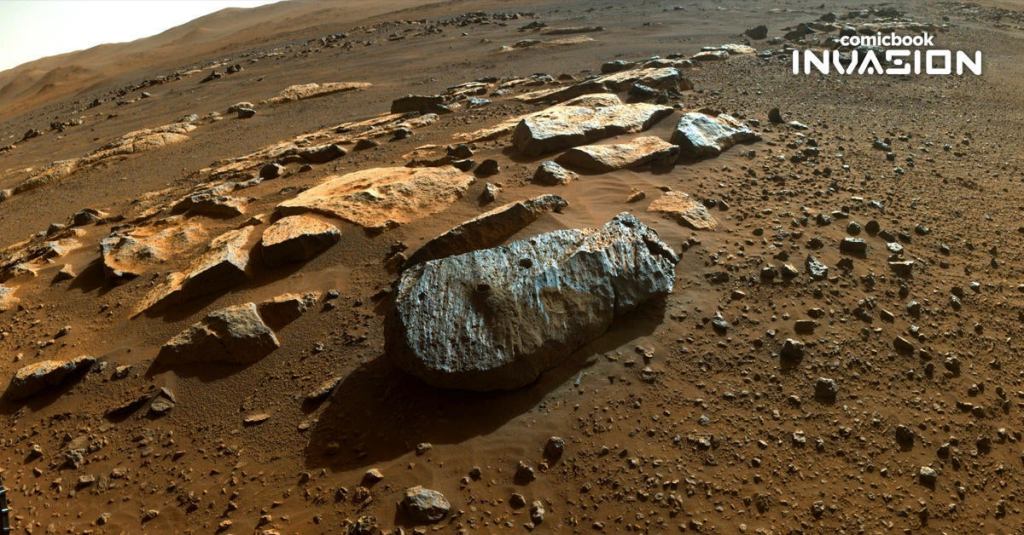NASA’s Perseverance Mars rover has collected its first two samples from the Red Planet, and scientists are already suggesting it could be a positive sign to those hoping to find some form of alien life on the planet. The samples were collected between September 6th and 8th from the same rock on the surface of the planet.
Videos by ComicBook.com
According to one of the mission leads, early analysis of the two samples could be a “big deal” in proving water stood on the planet for quite some time. Water, naturally, would lead directly to signs of microbial life.
“It looks like our first rocks reveal a potentially habitable sustained environment,” Caltech’s Ken Farley of Caltech said in a press release distributed by NASA. Farley is a project scientist for NASA’s Jet Propulsion Laboratory. He added, “It’s a big deal that the water was there a long time.”

NASA said the analysis has shown evidence of salts existing within the rock samples, potentially having formed due long-term exposure to groundwater.
“The salt minerals in these first two rock cores may also have trapped tiny bubbles of ancient Martian water,” the outfit added. “If present, they could serve as microscopic time capsules, offering clues about the ancient climate and habitability of Mars. Salt minerals are also well-known on Earth for their ability to preserve signs of ancient life.”
While some analysis can take place aboard Perseverance, the samples will have to be brought back to Earth for further study. As Perseverance continues to gather samples, scientists may form temporary “depots” across the planet’s surface. This would allow a separate mission to retrieve them while Perseverance stays on the planet.
“These samples have high value for future laboratory analysis back on Earth,” said Mitch Schulte of NASA Headquarters, the mission’s program scientist. “One day, we may be able to work out the sequence and timing of the environmental conditions that this rock’s minerals represent. This will help answer the big-picture science question of the history and stability of liquid water on Mars.”
Cover photo by NASA/JPL-Caltech








